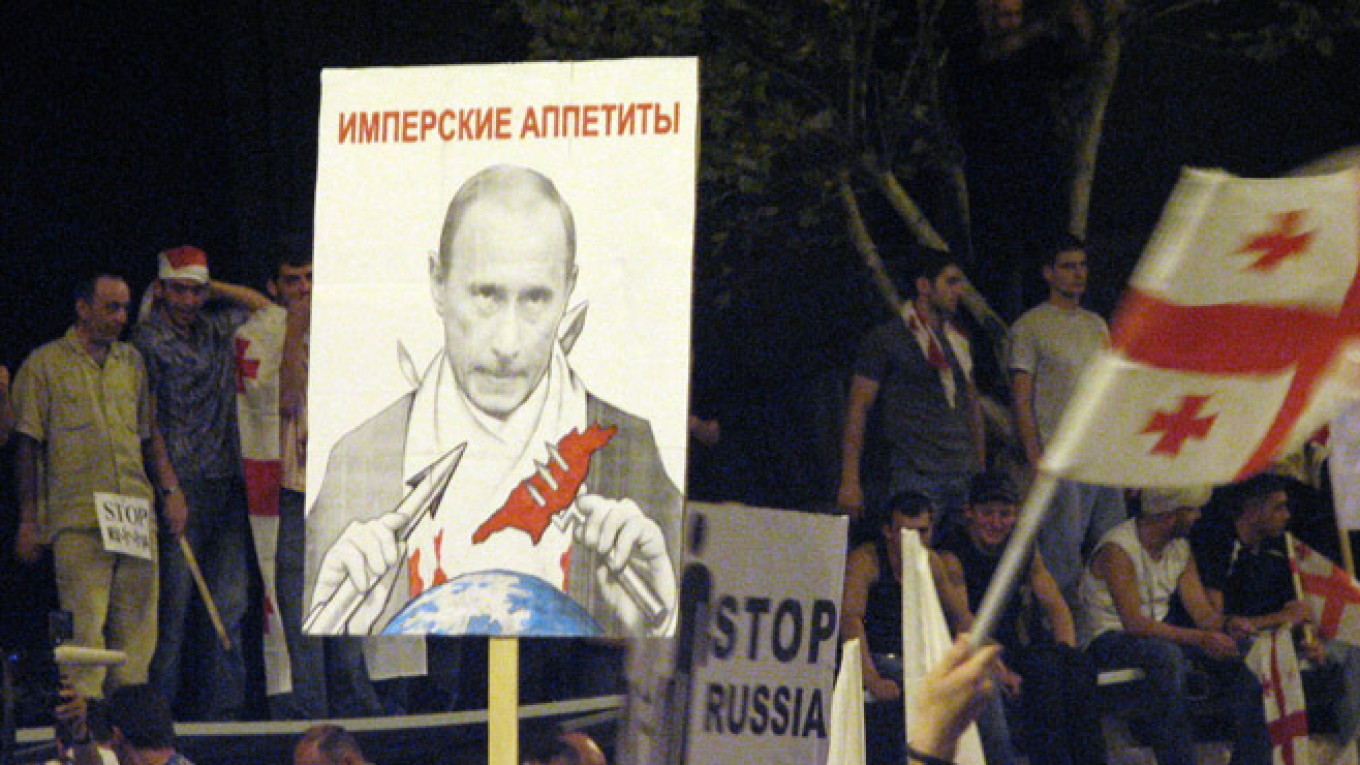The Russian annexation of Crimea in March 2014 sent shock waves through the post-Cold War security order. However, just a few hundred kilometers to the east of the Crimean Peninsula, a legal process is underway that may well see the de facto annexation of another region into the Russian Federation.
The prospect of an Ossetian union between North Ossetia, a region of the Russian Federation, and South Ossetia, a separatist self-governing territory internationally recognized as a part of Georgia, has been a topic of concern in the Caucasus region since the dissolution of the Soviet Union. With a Russian-South Ossetian "Treaty of Alliance and Integration" imminent, it seems that such a union might, implicitly at least, come into being later this month.
Unlike the treaty of the same name that Russia signed with Abkhazia at the end of 2014, which underwent several re-writes, the draft of the South Ossetia treaty involves the transfer of huge amounts of sovereign responsibilities away from the de facto authorities in the capital Tskhinvali to the Russian Federation. These transfers are so comprehensive as to effectively signal the end of South Ossetia as an independent entity.
Calls from within South Ossetia for absorption into the Russian Federation are not new, and have been reinvigorated by Russia's annexation of Crimea. In the past, Russia has not responded to these overtures, instead relying on a very asymmetrical bilateral relationship following the Russian recognition of South Ossetia in August 2008.
This latest treaty, however, seems to discard this pretense in favor of direct Russian management of the territory without the diplomatic headache of overt annexation.
The key aspects of the treaty, to be implemented for "an indefinite period" are:
• The armed forces and other security agencies of South Ossetia are to be made a part of the armed services and federal security agencies of the Russian Federation.
• Border checkpoints and customs controls between Russia and South Ossetia are to be abolished.
• Russia will take full control of border control duties on the South Ossetia-Georgia border.
• Restrictions on foreign nationals will no longer apply to Russian citizens in South Ossetia.
• Public sector wages and income support in South Ossetia will be equalized with those in the North Caucasus Federal District. This will be facilitated by extra Russian funding.
• The South Ossetian school curriculum will be equalized with the Russian curriculum.
If this treaty is signed into law, South Ossetia will lose control of its military, police, border control, judiciary and education system. In short, all of the attributes of a sovereign polity, recognized or not. The immediate impact of this will be softened due to de facto Russian control, official or via infiltration, of many South Ossetian institutions, but writing such control into law is groundbreaking.
The response of Western governments to these measures is predictable, a damning indictment of its illegal nature and a firm statement in support of Georgian territorial integrity. However, the reality is that neither the West nor Georgia have any mechanisms with which to influence this process. The Law of Georgia on Occupied Territories, passed in the aftermath of the 2008 war, forbade outside involvement in the territories of South Ossetia and Abkhazia; a policy that was, by and large, adhered to by the West.
This policy is indicative of a wider trend in the Black Sea basin, where overly simplistic Western approaches have failed to account for the complex political and ethnographical nuances of the region. The Russian annexation of Crimea has brought much overdue attention to these issues, but, it appears, too late for South Ossetia.
Thomas Frear is a researcher at the European Leadership Network.
A Message from The Moscow Times:
Dear readers,
We are facing unprecedented challenges. Russia's Prosecutor General's Office has designated The Moscow Times as an "undesirable" organization, criminalizing our work and putting our staff at risk of prosecution. This follows our earlier unjust labeling as a "foreign agent."
These actions are direct attempts to silence independent journalism in Russia. The authorities claim our work "discredits the decisions of the Russian leadership." We see things differently: we strive to provide accurate, unbiased reporting on Russia.
We, the journalists of The Moscow Times, refuse to be silenced. But to continue our work, we need your help.
Your support, no matter how small, makes a world of difference. If you can, please support us monthly starting from just $2. It's quick to set up, and every contribution makes a significant impact.
By supporting The Moscow Times, you're defending open, independent journalism in the face of repression. Thank you for standing with us.
Remind me later.


